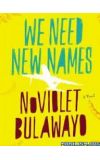
21 Jun 2013 03:39:27
I was at a Caine prize seminar a few years back and the discussion was on the state of the new fiction coming out of Africa. One of the panellists, in passing, accused the new writers of "performing Africa" for the world. To perform Africa, the distinguished panellist explained, is to inundate one's writing with images and symbols and allusions that evoke, to borrow a phrase from Aristotle, pity and fear, but not in a real tragic sense, more in a CNN, western-media-coverage-of-Africa, poverty-porn sense. We are talking child soldiers, genocide, child prostitution, female genital mutilation, political violence, police brutality, dictatorships, predatory preachers, dead bodies on the roadside. The result, for the reader, isn't always catharsis, as Aristotle suggested, but its direct opposite: a sort of creeping horror that leads to a desensitisation to the reality being represented. The question to be asked then is whether this new writing is a fair representation of the existential realities of Africa, or if it is just a "Caine-prize aesthetic" that has emerged in a vacuum created by the judges and the publishers and agents over the years, and which has begun to perpetuate itself. Writing is an incestuous business: style feeds on style, especially if that particular style has proven itself capable of winning prizes and book deals and celebrity.
NoViolet Bulawayo's new novel, We Need New Names, is an extension of her Caine prize-winning short story, "Hitting Budapest", and yes, it has fraudulent preachers and is partly set in a soul-crushing ghetto called Paradise, somewhere in Zimbabwe. Yes, there is a dead body hanging from a tree; there is Aids – the narrator's father is dying of it; there is political violence (pro-Mugabe partisans attacking white folk and expelling them from their homes and chanting "Africa for Africans!"); there are street children – from the ranks of whom the narrator, Darling, finally emerges and escapes to America and a better life. Did I mention that one of the children, 10- or 12-year-old Chipo, is pregnant after being raped by her grandfather?
There is a palpable anxiety to cover every "African" topic; almost as if the writer had a checklist made from the morning's news on Africa. There's even a rather inexplicable chapter on how the Chinese are taking over Africa, and how, as one of the street kids puts it, the Chinese "are not even our friends". Such moments are made possible by its rather free-ranging, episodic plot structure.
And this is all in the first hundred pages, before the narrator is whisked away to America – to Detroit, Michigan, or as the children call it, "Destroyedmichygen".
What stops the book collapsing under its own thematic weight is a certain linguistic verve, and the sense that this is a really talented and ambitious author who might at any moment surprise the reader by a plot twist, some technical bravura, or a thematic transcendence that will take the story beyond its gratuitously dark concerns to another, more meaningful level. For really, what is the purpose of suffering in literature, especially in a coming-of-age novel, but to serve as midwife to spiritual and psychological growth?
In America, the narrator does grow when she finds out that, despite the material wealth, all she has dreamed of won't necessarily come true. Her aunt Fostalina's marriage falls apart even as she struggles every day to look like the rake-thin women she sees on TV. "When Aunt Fostalina finishes walking she asks, 'You think I am losing weight? ... Who is fatter, me or your mother?' ... Then she lifts those metals and says, 'I will be going on a fruit diet.'" The failure of the marriage becomes a metaphor for the illusoriness of the American dream.
Bulawayo's keen powers of observation and social commentary, and her refreshing sense of humour, come through best in moments when she seems to have forgotten her checklist and goes unscripted: where, for example, we find Darling and her friends Krystal, the African American, and Marina, the Nigerian, watching porn in the basement, and they turn off the volume so they can make all the groaning and moaning noises themselves. Or when, on describing snow falling outside the window, she writes: "How does something so big it shrouds everything come down just like that and you don't even hear it coming?"
These moments show what Bulawayo can do when she is enjoying herself – when she doesn't feel she needs to be both a player and a commentator at the same time. The world is a dark and ugly place, a lot of that ugliness and injustice is present in Africa, but we don't turn to literature to confirm that. The news is enough. What we turn to literature for is its ability to transport us beyond the headlines.

